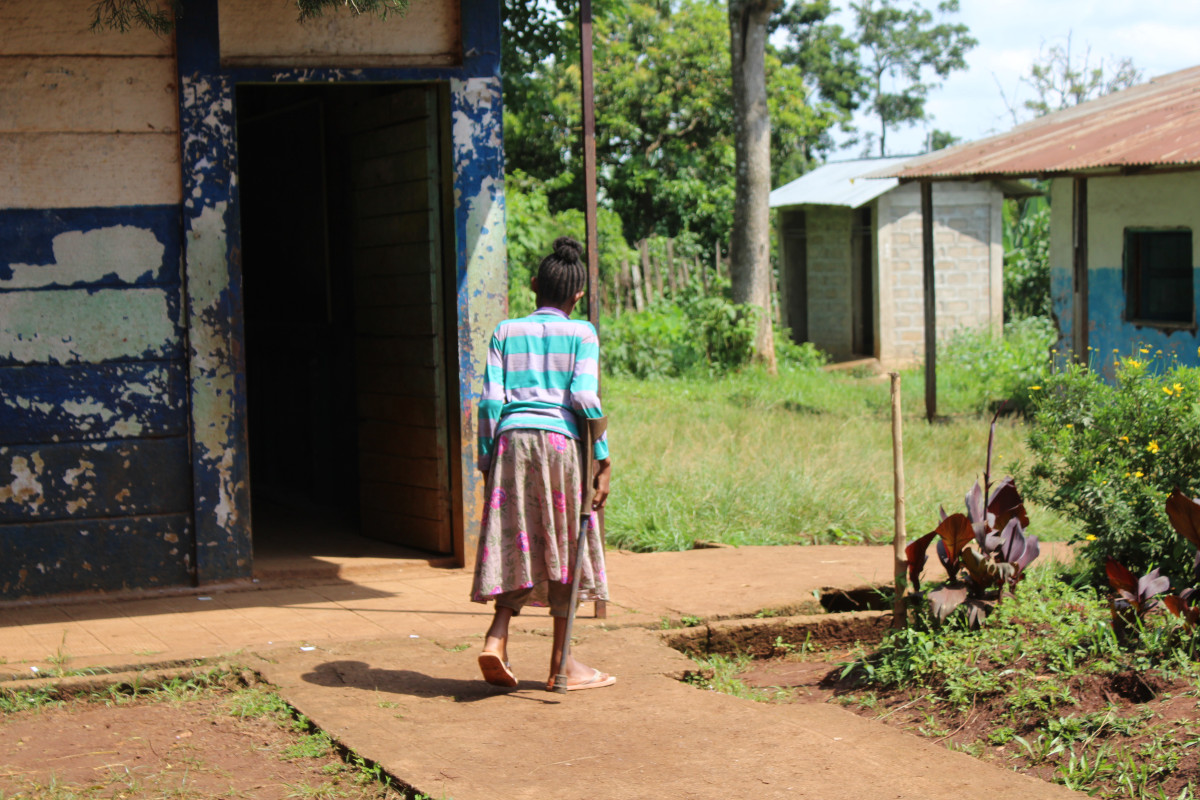Sanitary pads changing the everyday lives of women in rural Ethiopia
Published: Dec 22, 2023 Reading time: 3 minutes Share: Share an articleMenstrual hygiene is a challenge in rural Ethiopia. Women cannot buy sanitary pads or underwear. They are neither affordable nor available at the markets. At People in Need Ethiopia, we help by providing dignity kits so women in rural areas can confidently go about their daily lives.

Yibidaya Ayano lives in Baide kebele, in the Konso zone. She is 37 and has five children. She attended a primary school until grade 4 but dropped out due to an early marriage.
Yibidaya and her family's livelihood mainly depends on subsistence farming. However, due to drought and conflict, their farmland has been unproductive and does not yield enough to meet their needs.
Their area is a priority hot spot due to frequent droughts related to climatic and weather changes and erratic rainfall. Moreover, the ongoing conflict with neighbouring districts exacerbated the existing humanitarian crisis in the zone. The combined effects resulted in Yibidiya losing her cattle, goats, and sheep. Without her livestock, she was unable to feed her family.
In collaboration with the local Disaster Risk Management Office (DRMO) and the kebele representatives, we identified the most vulnerable community members to support with hygiene and sanitation. Yibidiya received a dignity kit, a box that contains sanitary pads, underwear, and soap. She could not afford to buy one for herself and had never used one. In addition, women received WASH items, which included two jerry cans for carrying and storing water, a plastic basin, laundry and body soap, and a bucket.
Most women in the Konso zone have no prior experience using sanitary pads. While on their period, they usually stay at home until it stops. Women are unable to attend social functions, and girls are not able to go to school.
Before receiving dignity kits, rural women gathered to attend a demonstration session.
In recent years, a growing body of studies has demonstrated a strong and consistent association between poor menstrual hygiene practices and a higher prevalence of urinary tract infections. Globally, at least 500 million women and girls lack adequate facilities for menstrual hygiene management. Lack of water, sanitation, and hygiene facilities, particularly in public places such as schools and workplaces, can pose a significant obstacle to women's and girl's menstrual hygiene.
Women in the Konso zone are supported through the “Multisectoral life-saving response to the acute needs of the most vulnerable IDPs, returnees, and host communities” project funded by USAID's Bureau for Humanitarian Assistance.
Yibidiya is still concerned about her community, which is vulnerable to volatile conflict. Due to a shortage of rain and a lack of access to clean drinking water, local women must walk long distances on foot, potentially exposing them to gender-based violence. She believes the government, PIN, and other humanitarian organisations must pay more attention to this danger.


